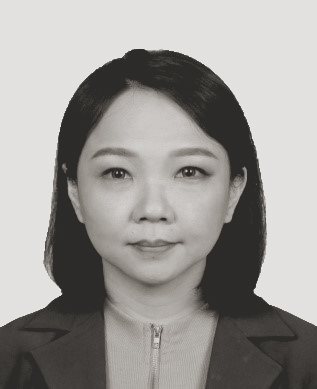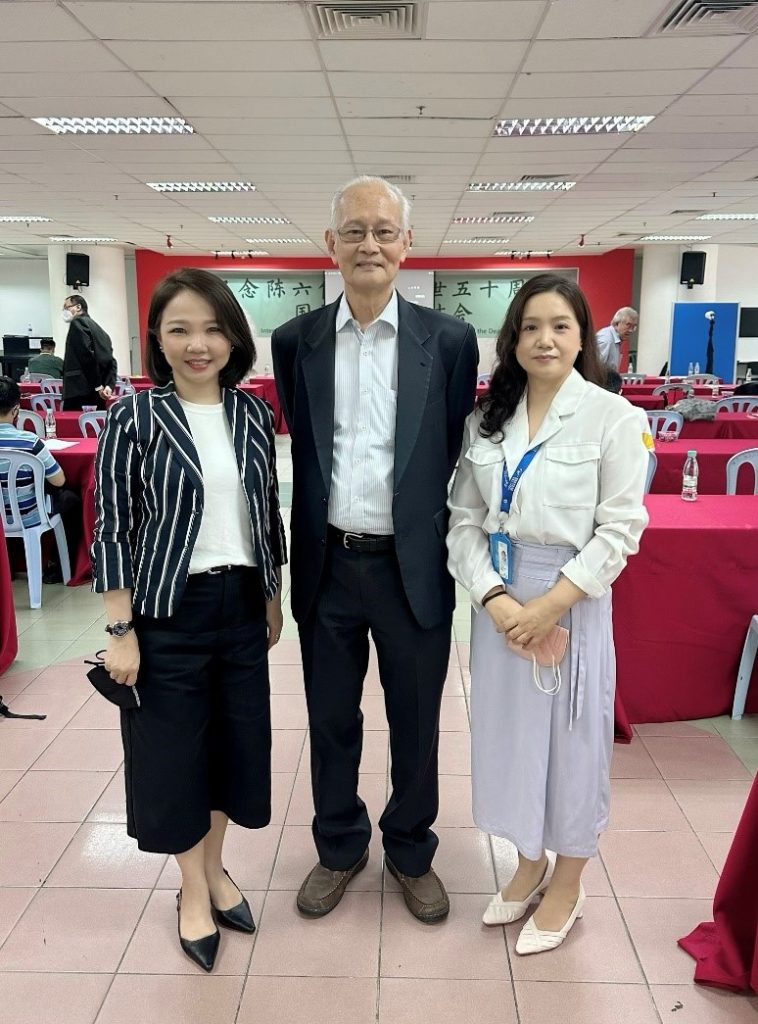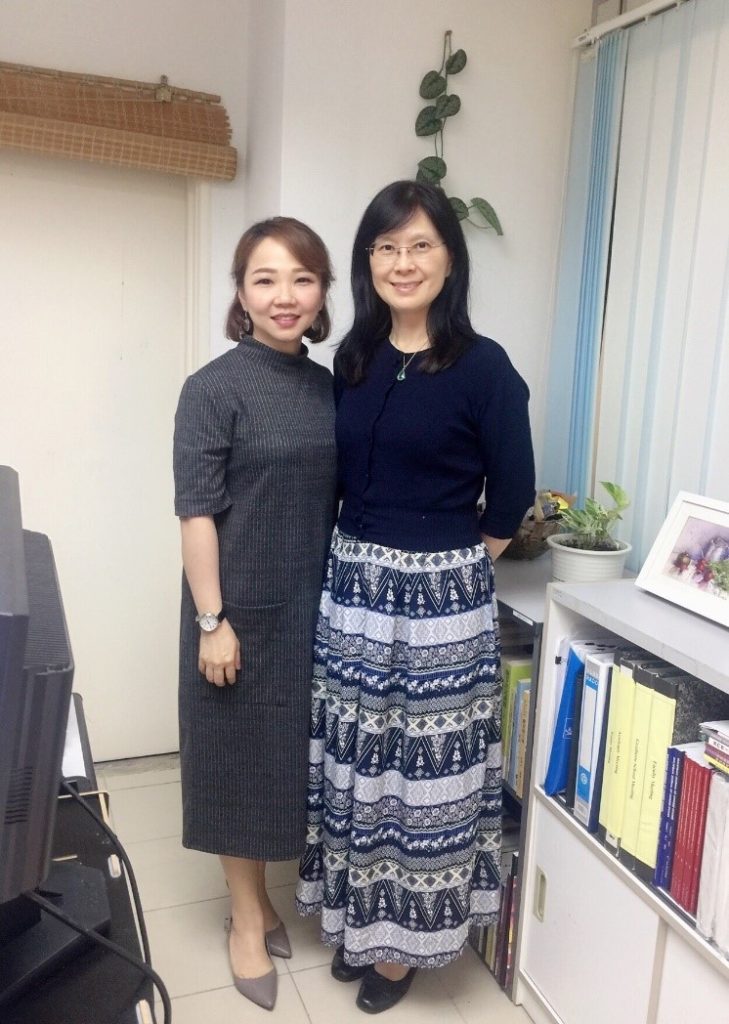Wong, Shwu Huey
VISITOR’S VOICE
Interview with Wong Shwu Huey »
Department of Education, New Era University College, Malaysia

What are your favorite things?
✔ To live purposefully: Strive to fulfill the meaning of life that God has bestowed upon me.
✔ To teach effectively: Aim to be a transformative and inspiring educator for my students.
✔ To explore the world: Expand my horizons and gain fresh perspectives through travel, enriching both my personal and professional life.
Interview
The Sustainable Development of Chinese Education in Malaysia
01
Please tell us about your research.
Over the past two years, my research has focused on the sustainable development of Chinese education, encompassing teaching and learning activities in 1,301 Chinese elementary schools, 62 Chinese independent secondary schools, and 3 Chinese private universities in Malaysia that use the Chinese language as the medium of instruction. My four-month research paper at CSEAS aims to reflect on the development of Malaysian Chinese elementary schools during the past decade, explore their challenges, and provide actionable recommendations for their sustainable development. It also seeks to provide valuable insights and lessons for the sustainable development of Chinese education in other Southeast Asian countries.
Malaysian Chinese education has undergone continuous refinement throughout different eras, nurturing generations of talented individuals for the country’s society, while also transmitting and disseminating Chinese culture and accumulating solid educational outcomes. These outcomes are closely related to the overall development trend of the system. Specifically, Chinese education in Malaysia serves to promote exchange among diverse ethnic groups and demonstrate the values of “harmony” and “compatibility” inherent in Chinese culture. It also strengthens national consciousness, common values, and a multicultural outlook, based on Chinese identity, value identity, and cultural identity.
The system is complete, spanning from elementary to university level, and has continuously improved through the promotion of effective curriculum, teaching, and evaluation systems at different levels. Stratification and classification within the system have also deepened, furthering progress towards new era education.
Localized and standardized curriculum and control systems are major achievements in terms of educational resources. Such standards regulate educational activities for Chinese primary schools within the national education system, independent secondary schools led by Chinese educational institutions, and Chinese universities controlled by the Ministry of Higher Education and the Malaysian Qualifications Agency (MQA). All these systems are based on national goals of human development.
Chinese media, education, associations, and enterprises are essential parts of the Chinese community, and their destinies are intertwined. Chinese elementary schools are critical for the development and survival of Chinese education in Malaysia. Therefore, their development is a pressing concern within the community.
This study explores the current situation of Chinese elementary schools in terms of orientation, current status, curriculum development, and teaching evaluation. It identifies developmental issues and provides actionable recommendations for their sustainable development based on the overall development of Chinese education in Malaysia. It is hoped that this study will serve as a reference for the sustainable development of Chinese elementary schools.
02
Can you share with us an episode about any influential people, things, and places you have encountered whilst doing your research?
I have had the good fortune of encountering two scholars who have greatly influenced my academic research. The first is Professor VOON Phin Keong, who visited CSEAS as a research scholar over two decades ago. He is widely respected in the field of Chinese studies in Malaysia, possessing a breadth of knowledge across diverse research areas. Professor VOON has provided me with invaluable guidance and advice, especially in encouraging me to approach issues from multiple perspectives to arrive at more comprehensive and insightful conclusions. He also has a talent for stimulating critical thinking and challenging conventional ways of thinking, particularly among younger scholars.
The second scholar who has had a profound impact on me is my research partner, Associate Professor WANG RuiXin. Her meticulous attention to detail and her encouragement to delve deeply into research data and results made a significant contribution to our joint research project. She exhibited a rigorous approach in interpreting and analyzing the data, which helped me to understand the findings with greater clarity.
Both of these scholars share a deep concern for the personal development and growth of fellow researchers, and they have played a pivotal role in shaping my academic career. I consider myself exceptionally fortunate to have had the opportunity to grow and learn alongside them.
03
How do you overcome the difficulties in putting together the results of your research into a research paper or book?
I generally take the following steps.
Organize ideas: I use an outline, mind map, or other tool to seamlessly integrate ideas and findings into a clear roadmap.
Establish realistic goals and deadlines: I break down tasks into manageable parts and set practical goals and deadlines for each part. This helps me stay motivated and focused, and ensures steady progress toward the end goal.
Seek feedback: I share my work with peers or colleagues and ask for feedback. This helps me identify weaknesses in my arguments or presentations and provides valuable suggestions for improvement.
Edit and revise: After drafting, I take the time to carefully edit and revise my work. I look for inconsistencies, errors, and redundancies, and make my writing as clear and concise as possible.
Take breaks: Researching and writing can be exhausting, so I make sure to rest and recharge. I take walks, read books, or do other activities to stay alert and focused.
In summary, to successfully integrate research findings into a research paper or book, I remain patient, persistent, and methodical. By creating a clear plan, setting realistic goals, seeking feedback, and revising my work, I can gradually overcome difficulties and achieve my goals.
04
What is your ideal image of a researcher, and do you have any advice for those who aim to become researchers?
I have a close friend and academic mentor, Professor Sophia Shi-Huei HO, who serves as the Director of the Institute of Educational Administration and Evaluation at the University of Taipei. She once emphasized the following points to consider when conducting academic research:
Critical thinking: Researchers should employ critical thinking throughout the research process to analyze and solve problems.
Willingness to experiment with new ideas: Researchers should be open to trying different research methods in order to obtain innovative results.
Global perspective: Researchers need a robust knowledge background and the ability to think across disciplines in order to promote interdisciplinary research.
Based on these perspectives, I recommend the following for future researchers:
- Continuously improve their cognition, skills, and mindset to engage in academic research with a positive attitude.
- Establish collaborative relationships with scholars in related fields or across disciplines and maintain a curious and exploratory mindset when encountering the unknown.
- Always maintain a respectful attitude and accept criticism and suggestions from others, particularly when researching different cultural backgrounds and perspectives.
- Maintain a humble and open mindset to facilitate ongoing learning and growth.
In summary, academic researchers must constantly explore, learn, and grow to adapt to the changing environment and emerging fields of research.
05
What are your future ambitions as a scholar?
As a scholar, I hope to make substantial contributions to the Malaysian community through my research and educational work. I aim to become a professional in the field of Chinese education by conducting in-depth impactful research and publishing my findings in more academic journals. In addition to research, I would like to become an excellent educator who can inspire students’ potential through teaching and actively train future teachers. My vision is to become an influential scholar and educator who will make substantial contributions to society and help more young people become teachers of a new era, who can help move society forward.
(March 2023)
Wong Shwu Huey is a Visiting Research Scholar of CSEAS
from March – June 2023

